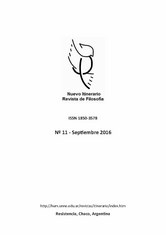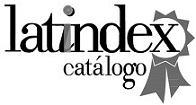Governmentality and Human Capital
DOI:
https://doi.org/10.30972/nvt.2027912Keywords:
neoliberalism, governmentality, human capital, biopolitics, FoucaultAbstract
Michel Foucault's history of governmentality has allowed us to recognize various forms of articulation of government through freedom and freedom as an object of government in liberal and neoliberal political rationalities. In this framework, he addresses the importance of the theory of human capital, since it introduces economic analysis into a hitherto unexplored domain, and allows us to reinterpret in economic terms an entire domain that had been considered non-economic. To a large extent, this revolves around the analysis of human labor in a neoliberal key. The ways in which our present articulates the government of conduct under the reduction of education and development to the form of human capital, incite a genealogical tracing of the origin of the question. With this purpose, we will highlight the ways in which the notion of human capital emerges in the different rationalities of government that unfold between the end of the 19th and 20th centuries. We will focus on the reception of the issue of investment in human capital in Argentina, highlighting its expression in the social medicine forged by Ramón Carrillo, in order to point out its particularities. We seek to contribute to the problematization of the notions from which we intend to govern our behavior, as part of a critical diagnosis of the present.
References
Aráoz Alfaro, G. (1899). El Libro de las Madres: pequeño tratado práctico de higiene del niño con indicaciones sobre el embarazo, parto y tratamiento de los accidentes. Librería Científica.
Aráoz Alfaro, G. (1922). El Libro de las Madres. Manual práctico de higiene del niño, con indicaciones sobre el embarazo, parto y tratamiento de los accidentes. Cabaut y Cía.
Aráoz Alfaro, G. (1942). El cuidado del capital humano. El Ateneo.
Becker, G. (2007). Health as human capital: synthesis and extensions. Oxford Economic Papers, 59, 379-410. https://doi.org/10.1093/oep/gpm020 DOI: https://doi.org/10.1093/oep/gpm020
Bilger, F. (1964). Le pensée économique libérale dans l’Allemagne contemporaine. Librairie Générale de droit et de jurisprudence.
Boswell, Jh. (1980). Christianity, Social Tolerance, and Homosexuality: Gay People in Western Europe from the Beginning of the Christian Era to the Fourteenth Century. University of Chicago Press. DOI: https://doi.org/10.7208/chicago/9780226067148.001.0001
Bröckling, U. (2003). Menschenökonomie, Humankapital. Zur politischen Ökonomie des ,nackten Lebens. Mittelweg, 36 (1), 3-22. https://www.soziologie.uni-freiburg.de/personen/broeckling/dokumente/13-menschenokonomie-mittelweg1-03.pdf
Bröckling, U.; Krasmann, S. y Lemke, Th. (2011) Human economy, Human capital: A critique of biopolitical economy. En Governmentality Current Issues and Future Challenges. Routledge. https://doi.org/10.4324/9780203846476 DOI: https://doi.org/10.4324/9780203846476
Carrillo, R. (1946). Discurso pronunciado por S. E. el Sr. Secretario de Salud Pública de la Nación, al dejar constituida la Comisión Mixta encargada de organizar la aplicación de los Decretos-Leyes sobre Medicina Preventiva. Archivos de la Secretaría de Salud Pública, 1 (1), 23-28.
Carrillo, R. (1948). Política sanitaria argentina. Ministerio de Salud Pública de la Nación.
Carrillo, R. (1951). Contribuciones al Conocimiento Sanitario. Ministerio de Salud Pública de la Nación.
Carrillo, R. (1951a). Teoría del hospital. Ministerio de Salud Pública de la Nación.
Carrillo, R. (1951b). Plan Sintético de Salud Pública, 1952-1958. Ministerio de Salud Pública de la Nación Argentina.
Carrillo, R. (1952a). Introducción a la Cibernología y a la biopolítica (los espacios del hombre). Hechos e Ideas, 98/99, 279-295.
Carrillo, R. (1952b). Sobre la Cibernología o el arte del gobierno. Revista Dinámica Social, II (19), 45-57.
Carrillo, R. (1975). Planes de salud pública 1952-1958. En Obras completas IV. Eudeba.
Carrillo, R. (2006). “Teoría Geral do Homem”. Electroneurobiología, 14 (3), 9-69. http://electroneubio.secyt.gov.ar/Ramon_Carrillo_Teoria_Geral_do_Homem.htm
Exner, G. (2004). Rudolf Goldscheid (1870–1931) and the Economy of Human Beings. A new point of view on the decline of fertility in the time of the first demographic transition. Vienna Yearbook of Population Research, 2, 283-301. https://austriaca.at/0xc1aa5572_0x00062027.pdf DOI: https://doi.org/10.1553/populationyearbook2004s283
Exner, G. (2010). A Berlin (population) statistician as a forerunner of the concept of the „human capital”. Ernst Engel (1821-1896) and his influence on Rudolf Goldscheid’s concept of “Economy of Human Beings” and the “organic capital”. https://epc2010.eaps.nl/papers/100043
Fisher, I. (1906). The Nature of Capital and Income. The Macmillan Company. DOI: https://doi.org/10.1515/9783112351369
Foucault, M. (2004). Naissance de la biopolitique. Seuil/Gallimard.
Friedman, M. (1962). Capitalism and freedom. University of Chicago Press.
Goldscheid, R. (1911). Höherentwicklung und Menschenökonomie - Grundlegung der Sozialbiologie. Leipzig.
Goldscheid, R. (1924). Frauenfrage und Menschenökonomie. Wien.
Haidar, V. (2013). ¿Salud y productividad?: sobre la formación de una analítica "económica" de la relación salud-trabajo (Argentina, 1900-1955). Salud Colectiva, 9 (2), 195-214. https://www.scielo.org.ar/pdf/sc/v9n2/v9n2a06.pdf DOI: https://doi.org/10.18294/sc.2013.32
Hadot, P. (1981). Exercices spirituels et philosophie antique. Volume 88 of Collection des études augustiniennes. DOI: https://doi.org/10.3406/ephe.1974.17023
Hill, Ch. (1972) The world turned upside down; radical ideas during the English revolution. Maurice Temple Smith Ltd.
Kiker, B. (1966). The Historical Roots of the Concept of Human Capital. Journal of Political Economy, 74 (5), 481-499. http://www.jstor.org/stable/1829595 DOI: https://doi.org/10.1086/259201
Kiker, B. y Cochrane, J. (1970). An "Austrian" Approach to the Theory of Investment in Human Beings. Southern Economic Journal, 36 (4), 385-389. DOI: https://doi.org/10.2307/1056850
King, J. (2019). The Alternative Austrian Economics: A Brief History. Edward Elgar Publishing. DOI: https://doi.org/10.4337/9781788971515
Lemke, Th. (2004). Die Regel der Ausnahme. Giorgio Agamben über Biopolitik und Souveränität. Deutsche Zeitschrift für Philosophie, 52 (6), 943-963. https://www.researchgate.net/publication/264002181_Die_Regel_der_Ausnahme_Giorgio_Agamben_uber_Biopolitik_und_Souveranitat DOI: https://doi.org/10.1524/dzph.2004.52.6.943
Lemke, Th. (2007). Biopolitik zur Einführung. Junius Verlag.
Lepage, H. (1978). Demain le capitalisme. Librairie Générale Française.
Marginson, S. (1989). Human Capital Theory an Education Policy. Discussion Paper No. 3. Public Sector Research Centre, University of NSW.
Miranda, M.A. (2019). Maternidad y biopolítica en la Argentina: Gregorio Aráoz Alfaro, El Libro de las Madres y la eugenesia (1870-1955). Passagens. Revista Internacional de História Política e Cultura Jurídica, 11 (2), 156-158 https://www.redalyc.org/journal/3373/337360476012/337360476012.pdf DOI: https://doi.org/10.15175/1984-2503-201911201
Muro, G. (2021). El don de la ubicuidad: Ramón Carrillo y la Cibernología peronista. Miño y Dávila.
Neef, K. (2018). Rudolf Goldscheids Menschenökonomie. Biopolitik und soziale Revolution. En Albert Dikovich/Alexander Wierzock (Hrsg.), Von der Revolution zum Neuen Menschen. Das politisch Imaginäre in Mitteleuropa 1918/19: Philosophie, Humanwissenschaften und Literatur. Weimarer Schriften zur Republik (pp. 201-217). Franz Steiner Verlag.
Riboud, M. y Hernández Iglesias, F. (1977). La théorie du capital humain: un retour aux classiques. En J.J. Rosa y F. Aftalion (eds.), L' Économique retrouvée: vieilles critiques et nouvelles analyses (pp. 226-249). Économica.
Rosa, J.J. y Aftalion, F. (1977). L'économique retrouvée: vieilles critiques et nouvelles analyses. Économica.
Rose, N. (2007). The Politics of Life Itself: Biomedicine, Power, and Subjectivity in the Twenty-First Century. Princeton University Press. DOI: https://doi.org/10.1515/9781400827503
Sand, R. (1934). L'économie humaine par la médecine sociale. Rieder.
Sand, R. (1948). L'économie humaine. Presses Universitaires de France.
Sand, R. (1948). Vers la médecine sociale. Desoer.
Saul, R. (2004). As raízes renegadas da teoria do capital humano. Sociologias, 6 (12), 230-273. https://doi.org/10.1590/S1517-45222004000200009 DOI: https://doi.org/10.1590/S1517-45222004000200009
Schultz, T. (1961). Investment in human capital. The American Economic Review, 51 (1), 1-17. https://www.jstor.org/stable/1818907
Smith, A. (1996). La riqueza de las naciones. Alianza.
Urbandt, I.; Francone, M.; y Novarini, E. (1946). La seguridad en el trabajo. Archivos de la Secretaría de Salud Pública, 1 (1), 45-67.
Downloads
Published
How to Cite
Issue
Section
License

This work is licensed under a Creative Commons Attribution-NonCommercial 4.0 International License.
Les autores ceden a Nuevo Itinerario los derechos de publicidad de sus trabajos, toda vez que hayan sido admitidos como parte de alguno de sus números. Ello no obstante, les autores retienen los derechos de propiedad intelectual y responsabilidad ética así como la posibilidad de dar difusión propia por los medios que consideren.












51.jpg)

